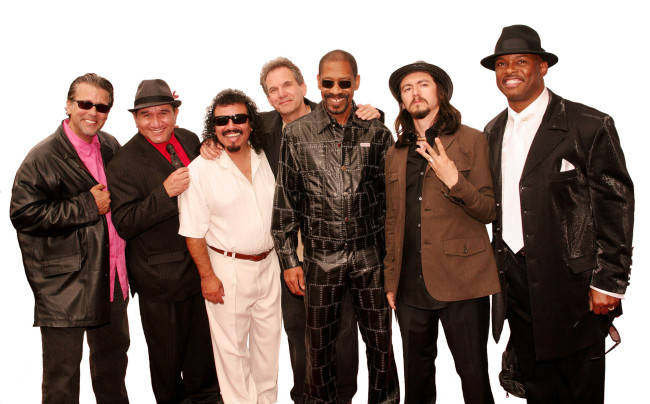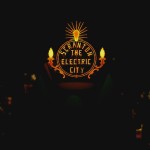ARCHIVES: Celebrating 40 years of funk, War is good for Scranton Jazz Festival

War may have made their indelible mark on the American music scene in the ‘60s and ‘70s, yet they are still as vibrant and relevant as ever, celebrating their 40th anniversary of the band with performances across the country.
The California funk group will be headlining the 2011 Scranton Jazz Festival on Friday, Aug. 5 at the Radisson Lackawanna Station Hotel (700 Lackawanna Ave., Scranton). Tickets are $35 and a weekend pass is $55.
Founding member Lonnie Jordan, who has served as the band’s vocalist as well as its guitarist, piano and synthesizer player, and percussionist, said that they selected their name during the height of the Vietnam War, looking to make a statement that resonated with many of their audiences.
“Think of us like the group Rage Against the Machine, except we were raging war against wars. Our weapons were our instruments. … Instead of bullets, it would be musical notes. It would be through rhythms, melodies, and most of all harmony, bringing people together instead of killing people and making mothers cry,” Jordan explained, adding that times haven’t, unfortunately, changed much since their debut.
“We can come up with a new message every day until we turn purple in the face; nothing’s going to change. It seems like all we were was just ahead of our time. It was something going on then that we were thinking was going to get better and it just turned into a fiasco. It’s just another movie; it’s just the characters have changed.”
While people can sometimes focus too much on all the negativity in the world, Jordan said that War has always tried to turn that into something positive. While the members have rotated over the years, “the vibe” of the act has always stayed the same.
“We still feel that our music has some of the best grooves in the world, so we basically call it grooves and messages,” he said.
“We are the people, for the people, by the people. We’ve always believed that.”
Jordan feels proud of all the music in their extensive catalog, finding each to have a distinctive message along with an individual sound.
“I don’t have one particular song at all that sticks out more than the others. I have a lot of fun playing all of them, and I notice the people also give me that same vibe back because we’re just a reflection of the people,” he said.
Their song “Why Can’t We Be Friends?” was played across the world during the first joint space mission by the United States and the Soviet Union, and much of their music has been sampled by other artists and used in countless commercials, television shows, and movies.
“I am honored. … I didn’t think that any of this music would be heard after it was recorded. I’m still amazed. As I’m growing older gracefully, I realize that the music does make sense today because it has a unique style of its own that stands out over a lot of other music that’s been played over the years. I’m happy for that.”
One famous single, “Lowrider,” actually helped inform the world about the unusual car style. Jordan said they sang about lowriders because no one else was talking about them, and when they filmed a movie about rival lowrider groups and traveled the world with it, they solidifying even more fans through the cultural phenomenon.
“People were freaking out when they saw these cars that we filmed hopping up and down and scraping. They never saw anything like that. We actually introduced lowriders to the world,” he recalled.
While the groundbreaking ethnic band was nominated unsuccessfully for the Rock and Roll Hall of Fame in 2009, Jordan is more appreciate of his fans than any physical award he could receive.
“My fans are my Rock and Roll Hall of Fame. Every time I go play in my own house, which I call my own church, and I see those smiling faces on new and old fans – that is my Rock and Roll Hall of Fame. You can’t beat that with a bat,” Jordan related.
“We’re still giving you some messages, whether it’s new or old, and sharing those messages with other people, the new generation. Our book is never closed in music. I just want to be known as one of those humble bands with, still, a unique sound.”
Some of War’s most famous fans even saved his life, he claims. The band would be the last to jam with guitarist Jimi Hendrix the night before he died, Jordan said.
“The reason why I’m still here today, alive and breathing and still playing for my fans is because they all steered me back on the path. Jimi Hendrix died at 27. And then I had the chance to meet one of Eric’s biggest fans of all, Jim Morrison of The Doors, who loved [original singer] Eric Burdon … and he was 27 when he died. Janis Joplin loved Eric, and she was 27 when she died,” he explained, also noting the recent passing of Amy Winehouse at 27.
As the band prepares to release a single in January with an album to follow, Jordan is also contemplating his own book with his many tales from the road. His days of touring, and finding enjoyment from that life, however, are far from over.
“We get people out of their seats. … Most of the people at the Jazz Festival that listen to us play are having a flashback from before they go into jazz back in the early days. They enjoy something different at the same time they’re hearing the music that became jazz on the hard jazz stations,” Jordan said.
“People have a good time every time we show up and we always bring sunshine.”



